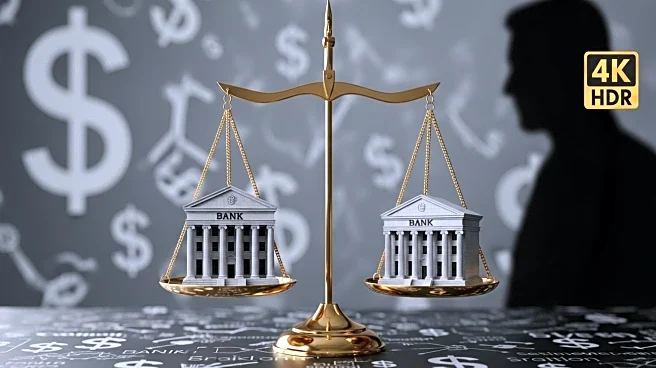What's Happening?
JPMorgan Chase reportedly settled a lawsuit with Jeffrey Epstein in 2011, paying him $9 million over claims related to the collapse of Bear Stearns hedge funds during the 2008 financial crisis. Epstein had invested over $57 million in the Bear Stearns High-Grade Structured Credit Strategies Enhanced Leverage hedge fund, which failed in 2007. Following Bear Stearns' collapse, JPMorgan acquired the firm and its liabilities, including Epstein's claims. The settlement was part of a broader effort by JPMorgan to manage the fallout from the financial crisis and its acquisition of Bear Stearns.
Why It's Important?
The settlement highlights the complex legal and financial entanglements resulting from the 2008 financial crisis. JPMorgan's decision to settle with Epstein, despite his controversial background, underscores the bank's strategy to mitigate potential legal liabilities inherited from Bear Stearns. This case also reflects the broader challenges financial institutions face in managing legacy issues from past acquisitions, particularly those involving high-profile and contentious figures like Epstein.
Beyond the Headlines
The settlement raises questions about the ethical considerations financial institutions must navigate when dealing with clients involved in criminal activities. It also sheds light on the potential reputational risks banks face when past associations with controversial figures come to light. As financial institutions continue to grapple with legacy issues, the balance between legal obligations and ethical considerations remains a critical area of focus.









